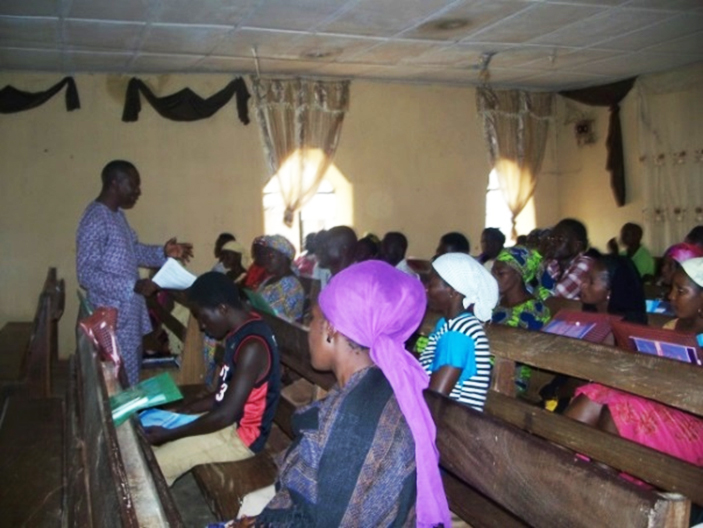
Despite this hard work, Awa’s mother found it difficult to make ends meet. She could not earn enough to feed the family and keep all the children in school. As a result, Awa soon dropped out of high school.
As is all too common for young women in Nigeria, Awa’s relatives and others in the community encouraged her to get married now that she was no longer in school. Marriage would mean that Awa could be financially supported by her husband, and her mother would have one less child to feed and care for.
She hopes that she will soon be able to expand her business and employ one or two other young people. She also hopes to save money to be able to go back to school.
While Awa didn’t really want to get married, she gave in to the pressures and was wed while she was still in her teens. Then, five years later, tragedy struck again. Awa’s husband passed away and she found herself in the same situation as her mother had been in.
She was an under-educated, single mother with two children to raise and care for. Soon, Awa was living in abject poverty.
She wasn’t alone. With so much unemployment and poverty in Nigeria, thousands of adolescent boys and girls drop out of school for various reasons and then find it difficult to find meaningful and adequate employment. With funding from the Manitoba Council for International Cooperation (MCIC), World Renew is working through a local partner called Beacon of Hope Initiative to address this problem.
They are targeting 679 active and promising adolescents (205 young men and 474 young women) in 12 communities with a two-year project called “Community Transformation through Youth Empowerment.” Through the project, young people are trained, mentored and supported to make good choices, pursue education, and start small businesses.
Awa is a great example. Through the project, Awa received training, mentorship and an initial investment of $173 to start a small business of her choice.
Awa knew exactly what to do with that money. She had noticed that people in her community enjoyed eating a native bread made from beans or bambara nuts — a recipe that she knew how to make.
She used her grant to buy a wheelbarrow which she uses to push her finished bread around for sale. She has found several regular customers and sells an average of $10 of bread each day. After paying her expenses she earns at least $2 a day, which is enough to take care of some basic needs of her family.
As part of the project Awa is also a member of a community cooperative group where she saves at least $1 weekly. As the group’s savings grow, she will be able to take small loans from the group savings to further invest in and improve her business.
She hopes that she will soon be able to expand her business and employ one or two other young people. She also hopes to save money to be able to go back to school. In the meantime, she is grateful to God and the supporters of this project who have made it possible for her to improve her business and her family’s well-being.
